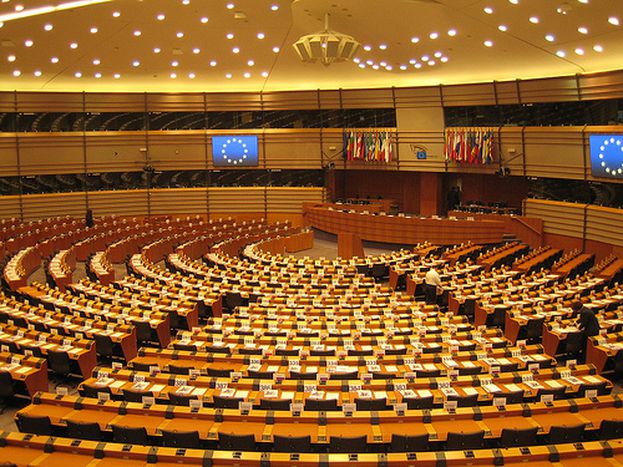
Trust me, I'm the European parliament
Published on
Translation by:
 Andrew Christie
Andrew Christie
52% of Europeans trust the European parliament - 3 percentage points fewer than in 2007. Nonetheless, it remains the most highly regarded European institution among its citizens
Latvia, Austria and the United Kingdom have the least trust in the European parliament. It is no coincidence that the conservative parties of these latter two countries are considering the possibility of splitting from the European people’s party to create a new, eurosceptic parliamentary coalition.
The inconsistency here lies in the polarisation of opinion surrounding the representative nature of the European chamber. Apart from that, the motives are the same regardless of whether Europeans trust the European parliament or not. Those who do, do so simply 'because decisions are made in a democratic way,' whereas those who don’t claim that 'the European parliament is too out of touch with its citizens.'
Nevertheless, the European parliament is the most highly regarded EU institution among Europeans, ahead of the European Central Bank (trusted by 50%), the European Commission (47%) and the European Council (43%). It is also the best-known: 87% of Europeans have heard of it, as compared with 78% for the commission, 73% for the Central Bank and only 62% for the council.
The widely awaited election reform is drawing near
'Europe is trying, like the individual nations, to build a democracy, but without the clout that the national democracies have,' laments liberal spokesman Andrew Duff, charged with the task of drawing up a framework for the European election reform. According to Duff, the parliament represents official democracy, and in order to build trust among the electorate it needs to change its approach towards citizens. One of the central ideas he proposes is to standardise the systems of regional elective districts so that candidates can answer voters more directly.
Candidates should answer voters more directly
Currently, however, this conflicts with the agreement between Spain, Germany, Poland and Romania, which have an autonomous system of national elective districts that is favoured by the major governing parties: socialists, conservatives and liberals. In terms of constitutional concerns, everyone is placing their hopes with the commission: that the Lisbon treaty is accepted, so that an election reform can then be fully embraced. Members of all parties have declared that the number one aim is for the elections to be completely overhauled in 2014.
First published on 26 January 2009 on eudebate2009.eu
Translated from El Parlamento Europeo pierde confianza


